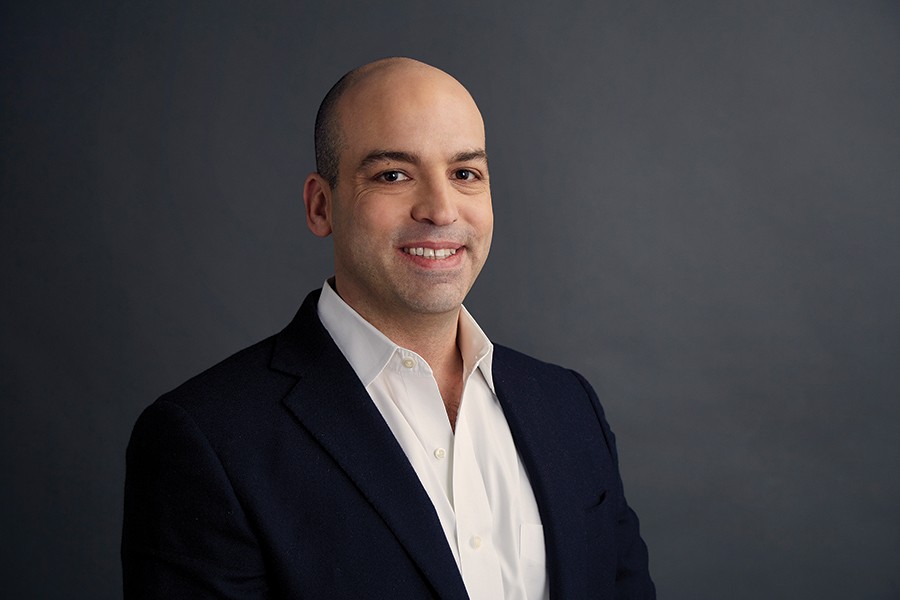Nausea. Liver damage. Pillowcases stained with orange tears. Tuberculosis medications trigger a bevy of unpleasant side effects. But the effects of not taking the drugs are far worse. Tuberculosis, a bacterial infection that attacks the lungs, spreads rapidly, especially among people with weakened immune systems. About 10,000 new cases are reported in this country each year. Patients who don't take their medication risk sparking drug-resistant strains, passing the infection to others, and developing devastating, potentially fatal complications. Many TB patients are coping with other health problems or addiction, making it difficult to follow their medication regimen. That's why health departments often require patients to take their pills in front of a health care provider—a logistically challenging and time-consuming process.
Also see
Sebastian Seiguer, Bus '13 (MBA), the former owner of a chain of German coffee shops, is the co-founder and CEO of emocha Mobile Health, an app that enables patients to skip the daily in-person appointment and instead film themselves taking their medication. Providers then review the time-stamped videos at their convenience. Patients can also use the app to message their providers questions about symptoms and side effects. The results are impressive. About 97 percent of the TB patients in the Houston area who used emocha in the chaotic weeks following Hurricane Harvey stuck to their treatment regimen, according to a recent report by the Centers for Disease Control and Prevention. Now the company is branching out into one of the country's most pressing health problems: helping those with opioid addictions.
How did you make the leap from coffee to health care? And while we're at it, how did a Baltimore native wind up starting a chain of coffee shops in Germany?
I started my career as an attorney based in London. One of my major clients was in Munich, and there just wasn't a place to get a good cup of coffee there. I created the San Francisco Coffee Company and built it to 25 locations. But after eight or nine years in the business, I felt like this can't be all I do with my life. I wanted to do something more fulfilling. My parents, my wife, and my sister are all doctors, and I saw how they were making people's lives better. I felt like I could do that in health care. I sold the coffee shops and moved back to my hometown of Baltimore to pursue an MBA at Carey Business School.
How did emocha come about?
When I started the MBA program, I was looking for software I could commercialize. I met with Dr. Robert Bollinger's group at the Center for Clinical Global Health Education, which was working on a mobile data collection platform related to infectious disease, and they suggested I meet with the Baltimore City Health Department to see what their needs were. The city—like most public health departments across the country—was looking for a way to help ensure TB patients were complying with their medication regimens. We came up with the idea of reworking the app to boost adherence.
Are you concerned that emocha could lead to patients seeing their doctors less frequently?
The app is designed to supplement regular office visits, not replace them. Patients and providers can communicate through the app, and these messages can be important springboards for conversation at future visits.
How is emocha growing?
When we first started out, we experimented with different ways to boost medication adherence. We tried applications that helped patients coordinate care or report taking their medication. But in early 2016, we got back data from studies showing that our directly observed care platform had tremendous results, and we made the decision to focus on that. Since then, our business has really grown quickly. This is an evidence-based industry. Every time we get data proving that this works as it should or that we've helped people, we grow dramatically. We have grown to 12 full-time employees. We have over 30 paying customers right now—health departments around the country. We have trials underway in India and Australia and another starting soon in South Africa to use directly observed therapy to treat TB. We also have a clinical trial underway that is looking at using emocha to help with opioid-replacement therapy, which is taking place at both the University of Washington and Boston Medical Center. The preliminary results are very promising.
What's next?
We're about to launch our first partnership with an insurance company, which is a big step. We hope to expand our efforts to help patients with opioid problems. More than 42,000 people died from opioid overdoses in 2016, according to the Centers for Disease Control and Prevention. We believe emocha could help primary care doctors treat patients with opioid addictions, making sure they are taking daily medications to help them manage their addiction. I believe that directly observed therapy can be applied to many other chronic health conditions, including asthma, hypertension, and Type 2 diabetes. My ultimate goal is to scale emocha as fast as possible and make video directly observed therapy the standard of care for medication adherence.
Posted in Health
Tagged health care, tuberculosis, opioids








